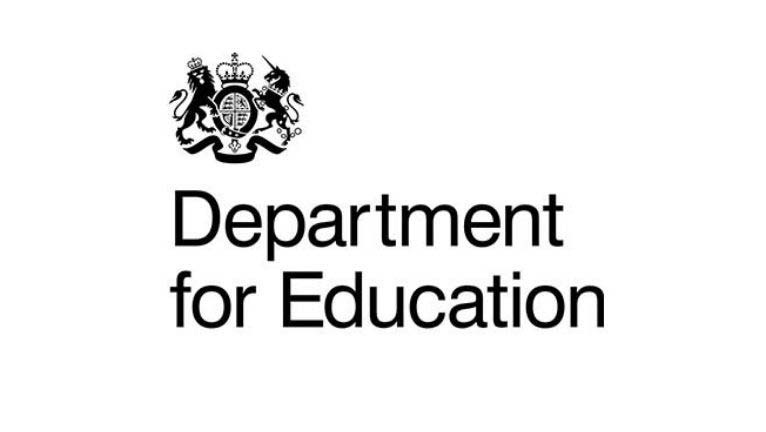PGCE in Secondary Education with Art and Design
An in-depth focus on teaching art and design, planned in association with qualified teachers from our partner schools. We've been training teachers for 180 years; we know education.

Entry requirements
A degree at 2:2 or above
GCSE English and Mathematics at grade 4 or grade C or above (or an equivalent qualification)
Experience of working with young people
We are committed to safeguarding and promoting the welfare of children and trainees. All trainees are expected to share this commitment and demonstrate consistently high standards of personal and professional conduct.
UCAS code 33HQ
UCAS institution code P63
Duration One year full-time or two years part-time
Full entry requirements
- Go to full entry requirements
- Interviews for PGCE Secondary Education
- See our how to get into teaching guide
Any questions about postgraduate study at Marjon?
Contact Rachel Bailey-Lewis, our Student Recruitment Officer (Postgraduate).
Course Summary
Our specialist PGCE in Secondary Education with Art and Design is a direct route to a career of which you can be proud. Art and Design impacts on our lives and this course aims to produce dynamic, confident, and innovative teachers who are committed to developing life skills.
Art and Design develops a passion for visual knowledge and understanding and the use of technology. Our PGCE Art and Design develops a range of teaching styles appropriate to the delivery of Art and Design within the National Curriculum and GCSE/A Level specifications.
Our PGCE Art and Design prepares trainee teachers for a first appointment as a teacher of Art and Design in a secondary school and assess current developments in the subject and their possible effect on teaching in schools. To develop as a teacher, you will be learning about how pupils develop their art and design skills and knowledge, and how they can be helped to a better understanding of themselves and the world through Art and Design. Furthermore, our PGCE Art and Design trainees can take up ‘enhancements’ linked to other curriculum subjects.
The trainees themselves are the most valuable resource on the course and we will be giving you the opportunity you to share your specialisms with the other trainees, and you will develop essential components of creativity and imagination such as determination, hard work, observing, thinking, experimenting, investigating, making, evaluation.
The curriculum is based around three themes and these are embedded in all MTEP modules across our provision and is carefully structured to provide you with the skills and subject knowledge required to teach effectively:
The themes are:
- The professional role of the developing teacher
- Development of teaching and learning
- Curriculum and specialisms
Our processes are aligned with the MTEP curriculum, the CCF, the ECF, the ITE Ofsted inspection framework and the Teachers’ Standards and explicitly considers how all components are sequenced incrementally to build your expertise and confidence.
Why this course at Marjon?
Top university in the UK for education-based courses in the Postgraduate Taught Experience Survey 2021
93.9 % of our graduates are in further study, sustained employment or both five years after graduating - compared to a sector average for England of 88.2% (LEO, 2019)
Marjon Teacher Education Partnership has well-established links with schools across the South West, London and Service Children’s Education, our connections span over 300 schools and settings
Marjon education and teaching graduates are 3rd in all University providers for graduate earnings five years after leaving the university (Institute for Fiscal Studies, 2018)
Our graduates are more socially mobile than other providers across the South West with more trainees gaining employment in more diverse areas (DFE Supply, Retention and Mobility data, 2018)
Tutors engaged in hard hitting research supporting key priorities and empowering practitioners
Modules for this course
1st Year
Professional practice in schools
Learning behaviours in context
Becoming a teacher: a reflective journey
Inclusion in the secondary classroom: maximising achievement
Understanding the learner: assessment and progress
This course is perfect if you’re curious about these questions...
How can I build strong relationships with pupils?
How can I promote the importance of art and design as a curriculum area in schools?
How can I expose pupils to the wide range of mediums for art and design?
How can I make the most of local art and culture to inspire my pupils?
How do good teachers keep on top of their workload?
How do I best work with colleagues and parents?
“ All trainees commented on how well the schools were set up for the start of their placements which helped them settle in well... Trainees were able to talk with confidence about their teaching experiences and all knew the specific areas that they had to develop as they go into their NQT year.”
What might you become?
Plymouth Marjon University is widely renowned for producing excellent teachers. We have superb links with over 300 partnership schools throughout the South West, London and overseas and our graduates teach in schools across the country. Our curriculum was praised by Ofsted for being "Designed to ensure you are well prepared for your wider professional responsibilities, including for pupils’ pastoral care. You will gain a secure understanding of how best to teach personal, social, health and citizenship education, in addition to your chosen subject specialism" (Ofsted, 2023).
We have a long established history of teacher education, we've got 180 years of experience in training teachers. A PGCE from Marjon represents a strong start to any teaching career. The Guardian University Guide 2024 ranked us Top 5 in the UK for education.
Working with:

Dept for Education
Marjon is recognised as a teacher training provider by the Dept for Education.
School-based learning may be available
How you’ll be taught and assessed?
How will you be taught?
Collaborative learning, critical reflection and a strong culture of support underpin the PGCE Art. You will have a minimum of 120 days in school in 2 block placements and 12 weeks in University undertaking a range of activities, teaching includes lectures, practical activities, seminars, workshops, conferences, tutorials, independent study or research and school based training.
How will you be assessed?
Assessments relate to your development of practice in school. All are coursework based, you will generate reflective journals, portfolios, essays and presentations.
Placement assessment is carried out by school mentors and university tutors against the three themes of the MTEP curriculum:
- The professional role of the developing teacher
- Development of teaching and learning
- Curriculum and specialisms

Giles is Programme lead for the Secondary PGCEs and Schools Direct.
Fees and funding
Fees UK students: £9,250
Fees for International students: £14,500
This fee covers your tuition and access to course-specific equipment and facilities, as well associated services including access to the library, study skills support, IT support, student support and wellbeing services and membership of the Student Union. There may be additional costs by course.
Funding available for this course
Our Student Funding Advisors offer confidential and impartial advice about your funding options.
Learn moreLecturers

Claire is Programme lead for the Secondary PGCEs and Schools Direct. Claire's specialist subject is English and before joining Marjon she worked in various secondary schools in Exeter as well for South West Teacher Training. Her research interests are reflective practice, teacher identity and retention.




